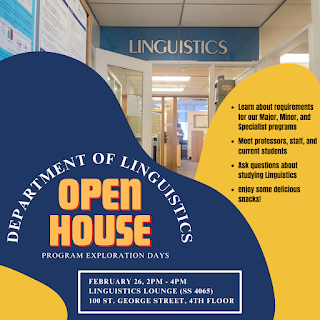The SGS Awards Committee has selected Lex Konnelly (PhD 2023) as the sole winner of the University of Toronto’s 2024 John Leyerle-CIFAR Prize for Interdisciplinary Research. This award recognizes outstanding doctoral dissertations with a strong emphasis on interdisciplinary research and significant contributions to both the academic community and to Canadian society. Note that the award is open to candidates from all SGS programs, not just Social Sciences and Humanities. Many thanks to Lex for putting Linguistics in the spotlight among all these disciplines!
Lex’s dissertation (committee members: Prof. Atiqa Hachimi, Prof. Susan Ehrlich and Prof. Derek Denis) explores the linguistic strategies employed by non-binary patients to negotiate medical expectations while expressing their gender identities authentically, highlighting the interplay between language, identity, and healthcare access. Lex’s work not only puts in conversation the fields of linguistics, (trans)gender studies, and studies of health communication, but also identifies barriers to accessing competent, truly affirming healthcare [quoted from the dissertation].
Please join me in congratulating Lex for their distinguished work!
Thanks to Guillaume for the text.






.jpg)
.jpg)
.jpg)
.jpg)